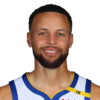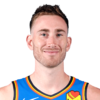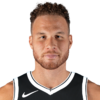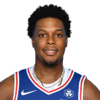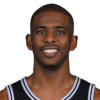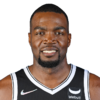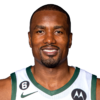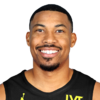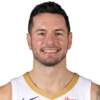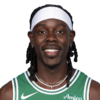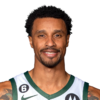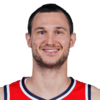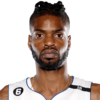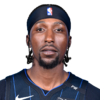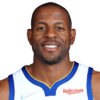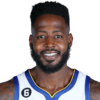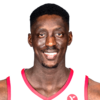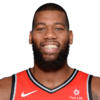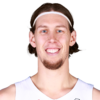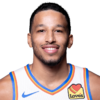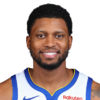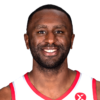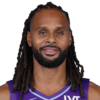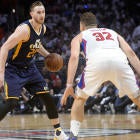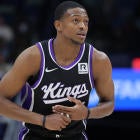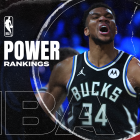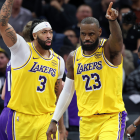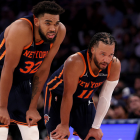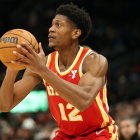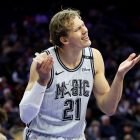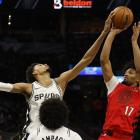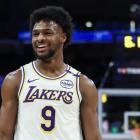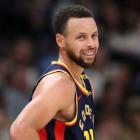The 2017 NBA free-agent class has a lot of great players who are unlikely to change teams, some diamonds in the rough and a whole lot of calculated-risk options. The best players are almost certainly going to re-sign with their teams, but then, we thought the same thing about Kevin Durant last year. The lesson here is that there are always surprises.
If the draft is about improving your future, free agency is about teams getting better immediately. Here's a look at the top 30 free agents available this summer, based on talent, production and value, factoring age, injury and expected price. Because of that last variable, expected price, some big names aren't on here, like Derrick Rose or Jeff Teague. Both of those players are expected to demand huge deals with big question marks at advanced ages. That stuff matters.
Potential fits are all based on on-court fit, and assume that the team would create the requisite cap room to acquire them, which simply may not be possible in some cases. Fits are based on conceptual ideas and not on reports or sourced information of interest.
The second-best player in the NBA. A dominant combo forward who is one of the best shooters and scorers the game has ever seen. A fierce competitor at 7 feet tall with a tight handle, exceptional athleticism and unbelievable touch. He has become a top-flight defender and rebounder and a gifted play-maker to boot. You are not getting him, he's re-signing with the Warriors. But if for any reason his people call you and say he's even slightly interested, you do whatever necessary to clear cap space and acquire him. He'll probably be the best player in the league within the next three seasons.
The best shooter in history. Transcendent shooting talent that has reshaped the game in a way no one since Wilt Chamberlain has. Universally beloved athlete. By all accounts a stand-up guy and hard worker. Injury is a concern. His ankles were reinforced by the finest medical science money can buy and he still suffered an injury in last year's playoffs, which contributed to his troubles, and he suffered the MCL sprain. Does not respond well to physicality. Prone to unnecessary flash; not a sound passer, but a creative one who can energize his team in the right moment. He has become one of the best finishers in the league, often by merely shooting scoop shots from further out. Showed this season he's willing to sacrifice to make those around him better.
Hayward has slid under the radar but after getting a max extension two years ago he has been one of the NBA's most efficient and productive forwards when adjusted for pace. His overall numbers look meager, but when you factor in the glacial pace that Hayward has played in under Quinn Snyder the effectiveness and impact of his play carries through. He can hit tough shots, spot-up shots, drive to the rim, pass out of the pick-and-roll, post up, cut to the rim and defend at a high level. He's never going to be a No. 1 player on a championship team, but he can be the best player on a playoff team or a phenomenal do-it-all second weapon. He's also 27, just hitting his prime. Hayward is expected to garner offers from Miami and Boston. Utah cannot afford to lose him.
Multifaceted thunderbolt who has added something new to his game every year. His mid-range jumper was absent, so he hammered it into being a legitimate threat. He faced early double-teams and multiple help defenders so he focused on establishing himself as a passer. Griffin isn't a great defender, he hasn't established a 3-point shot and comes with questions about his attitude and professionalism after last season's shenanigans. But Griffin has also improved in every area of weakness since he first started dunking on fools his rookie season. He has had his season ended by injury the last two years and his explosiveness appears to be on the decline way too early. Installing him as your franchise player comes with serious concerns about his durability.
All-Star caliber point guard who has blossomed and improved in each of the past five seasons. Lowry was a late bloomer but he is a well-rounded, efficient point guard who can run an offense, makes great passes, hits from the outside and when engaged, is a plus defender. Lowry is reliant on free throws but he's also a dynamic player and a fierce competitor with no major health concerns unlike Chris Paul. At 31, this is his last major contract and whoever signs him needs to be aware that at the end of it, he won't be nearly the player he is now. Toronto is widely expected to retain him in free agency, but he'll likely be making more than $35 million when he's 36, and that's a frightening prospect.
The Point God. The best pure point guard, career-wise, pound-for-pound (whatever that means) since John Stockton. A flawless passer who runs the pick and roll with incredible precision. Elite shooter for efficiency. One of the fiercest, most ruthless competitors in the game who balances that with an off-court commitment to community service that is unrivaled. Paul has no remaining meniscus in his knees and as such, his tail-off could come at any moment. He faces constant criticism for his inability to advance to the Western Conference finals despite leading a playoff contender year in and year out and almost never losing a series in which his team was favored and fully healthy. He's considered to be too aggressive and harsh in his leadership style, and reportedly contributed to DeAndre Jordan's near defection to Dallas two years ago. Paul is an otherworldly talent, but the clock is ticking on his career. He will look for a max contract to finish his career but might not be worth it by its finish. Still, you pay it. He's Chris Paul. The Clippers will offer more money and years than anyone else this summer, but will Paul want a change of scenery to try and clear his career?
At 32, there have to be concerns about diminishing returns. However, Millsap has no major injury history headed into his contract year and is a do-it-all forward you need in modern times. He can hit from the perimeter, is an at-once savvy and brutal post scorer, a magnificent defender who can switch constantly on to any assignment, a quality rebounder (in good rebounding systems which the Hawks have not emphasized with him) and a smart player who never lets ego get in the way of his contributions. Millsap is a winner who makes your team better. Let me put it this way: The Cavaliers would be considerably better with Millsap at power forward in place of Kevin Love, and Love helped them win a title.
At his very best, he's a top-level rim protector and a versatile defender who can switch on to any opponent while knocking down spot-up shot after spot-up shot all the way to the 3-point corner. Unfortunately, he hasn't been at his best consistently in a few years (most notably since a 2014 calf injury against the Spurs in the Western Conference finals). At times, Ibaka can get too focused on offense and it affects his defense. He can't create his own offense reliably and has lost a lot of spring in his step through the years. If the Raptors do not go for a rebuild, they will have to overpay to keep him just based on limited options.
Porter made the leap this season, and it played a significant part in Washington's jump to a top-four seed and a second-round appearance. For most of the season, Porter led the league in 3-point percentage among shooters averaging at least four attempts. He has exceptional length and can score a little off the dribble. if you swap out Porter for Andre Roberson, you're not losing much in defense and you're gaining a lot of offense. Porter's value as a two-way player sets him apart in this class. Washington will almost certainly match any offer for him, or offer him the five-year max, but any hesitation should be met by the rest of the league with a deluge of offers.
A top-level shooter who, thanks to conditioning and discipline, probably has two to three more years of starter-level production in him. An underrated defender and smart passer. One of the best at navigating screens to find shooting opportunities. Definitely a player that makes your team better, but good only for a contender on a long-term deal at this point. Total pro who's not going to disrupt your locker room, sets a great example for work ethic.
Holiday is an above-average starting point guard. He shoots well, is a huge problem for the other team on defense with great instincts, hands and speed and can make plays. He's reliable in the pick-and-roll and knows how to manage an offense. He's not a superstar in a league full of star point guards, but he's a good point guard in a league where you need one. You can win with Holiday.
At 31, there won't be many more productive years for Hill as starter quality, but for a team looking to have a veteran short-term starter who has no discernible weaknesses, Hill is a great option. He's a quality shooter, understands how to run an offense, isn't reckless or disruptive and blends right into any system. Hill also has no major injury history and should continue to be productive-to-rotation-quality into his mid-30s. A three-year deal for Hill will get what's left of his late prime and fills several needs. If your team isn't in need of a major point guard upgrade, Hill is a good option for a veteran at what will likely be fair market value.
Look, take away the idea of Dion Waiters, and focus on the actual player. Sixteen points per game on 42 percent shooting isn't great, but at 39 percent from 3-point range, the efficiency goes up. He's a good defender, can finish inside and make plays. He's good, even if he believes himself to be elite. The other key is that Waiters learned how to win in OKC. He gets it more than ever. Put him next to good players, and he'll help you win. He could have wound up being Nick Young. Now he's more like a gunner version of Shawn Marion.
The good: Long, athletic and can run point forward. A great slasher and incredible at drawing contact. He has shot over 35 percent from 3-point range in each of his past three seasons. Can post up, spot up, slash and get to the line. The bad: A botched knee diagnosis and procedure cost him the entire 2014 season, and he hasn't been the same athletically since. Tends to lag on off-ball defense, particularly in fighting through screens. He has shot over 42 percent from the field once in his career, his rookie season. A ball-dominant player who had one of the highest isolation rates in the league last season … and one of the worst efficiencies in isolation to boot (via Synergy Sport). Might be a terrific player as a fourth weapon on a contender, and can function as the second-best player on a playoff team, but the injury concerns are real.
The guy you love to hate -- unless he's playing for your team. Excellent at short-range jumpers and finishing inside. Sets great screens. He'll play through anything, and play well. He hustles his face off, and does so without complaint or needing recognition. Humble and smart. Not the biggest dude in the gym, but if you beat him, it won't be because you outwork him. You want this guy on your team. At age 32, the dropoff is a concern, but given he has taken a discount at every turn in his career and stayed humble, value seems likely.
Amazing defender, with some selectively good weapons he's developing on offense. He struggled to play next to Jahlil Okafor at power forward and regressed in some key areas in 2016, but blossomed a bit in Dallas. Lost his rookie season to an ACL tear and that's a concern going forward. Questions about his maturity after an incident with a rental home. He has unlimited defensive upside. He'll no doubt be retained by Dallas. Noel's upside is high, but at 23, it's not other-worldly.
A future Hall of Famer whose bag of tricks remains full. Wade isn't the same guy he was in his prime, or two years past it, and when he looks bad, he looks bad. But he still has nights and stretches where he will just ruin your entire life with tough shots and big plays. His 3-pointer remains statistically absent but has shown little blips of life here and there. More than anything, he's a guy who carries himself the right way and will help you win. You can do worse than having him around. Most don't expect him to pass up on $24 million with his option, but after Chicago was such a train wreck, I wouldn't rule it out.
He finally turned into a knock-down shooter after a few years where that was in serious doubt. A top flight perimeter defender who will only improve, with good wingspan and mobility, his value is only going to go up. The Pistons are a near-lock to re-sign him, though it might take a max offer from the Brooklyn Nets to force their hands in a restricted free agency match.
He wobbles a delicate line between being one of the most valuable players on one of the most dominant teams in NBA history and being a liability you can exploit by daring him to shoot. He has games where he's still one of the best defenders in the league, and others where he's a guy who has played a lot of miles and can't guard the absolute best player on the other team effectively. His shot is inconsistent; just as likely to knock down four straight as he is to miss six straight. A smart player who always settles the Warriors, he's very likely to commit to re-signing. He knows how good he has it with the Warriors.
A guy who has built himself from nothing to being one of the best values in this market. He can shoot from the perimeter, finish inside, rebound and defend five positions. He's not an elite defender but he's very good and can make a huge impact. A middle-management Paul Millsap. In the modern NBA, he's what you're looking for at power forward. The Nets would be wise to break the bank on a three-year deal for him.
Snell came into his own in Milwaukee. He's a crack shooter, 88th percentile on spot-up shots per Synergy Sports, and has good defensive ability in certain systems. He has good length and no major injury issues to speak of. For a league that needs shooters with size, Snell is an excellent option.
There are concerns here. Much of this depends on whether you believe in last season, a contract year, or not. Monroe showed more defensive ability than ever. He wasn't just fine, he was legitimately good, at least at times and in areas, and it showed in the metrics. His net ratings on vs. off were rivaled only by Giannis Antetokounmpo. He's a traditional big who's not going to stretch the floor. He's not a shot blocker. If you want rim protection, look elsewhere, and that's doubly difficult because stints with him at power forward haven't worked. But he is tremendously gifted offensively. He showed more willingness as a passer this season than before, alleviating some concerns about being a black hole. He's 27 this summer, so you're getting him in his absolute best years on this deal, without having to worry about a steep drop-off due to age.
Olynyk is pretty fascinating. He had a tremendous 2015-16 season and showed great defensive ability in containing the pick-and-roll. Then that wall went away this season, but he made up for it because he essentially put the Celtics in the conference finals with his Game 7 performance against the Wizards. He's a great shooter and will destroy mismatches if given one. He's also not a go-to weapon. You want him as a complementary component only and a bench role is pretty ideal. He's also 26. While he's entering his best seasons he's not going to make many huge leaps. Boston is going to be in a tough spot. If it can't find an upgrade, it needs to keep him, but the Celtics also need to keep costs down because of next summer when they're going to have to shell out a billion dollars.
Roberson gets a bad ranking here and it's not really his fault. Two things: 1. He's a restricted free agent and due to the Thunder's cap situation, they have little recourse but to re-sign him. (Think of it as the defensive version of why they signed Enes Kanter.) And 2. The offense is just too miserable. If you're down 10 and trying desperately to get back into it, you almost can't have him on the floor because of what he allows the defense to do by not guarding him. And this feels really unfair because Roberson is a first-team All-Defense level defender, a hard worker, athletic, has some counter moves and works his tail off. Because of those things, he's probably going to get big offers. So if you want him, to scare OKC off him, you have to go huge, and that's a lot of money for a guy who shot 8 of 40 from the right corner and 25 percent above the break. If you get him, you get a good player who will help you, but his value in this class is lower.
He's low on this list because he's not going anywhere. Technically, the Mavericks have a team option on his second year. They're going to exercise it. They're keeping him, or he's retiring. Those are the two options, end-dot. But let's say he and Mark Cuban get into a fight about Cuban's acting in his appearance on "Billions" and the two break up and they let him go. Yeah, he's a million years old, but he's Dirk Nowitzki and for about 10 nights out of the year, he's still going to cook. Legends are top 30, no matter what. You're not getting him, though.
Rudy Gay comes with a whole host of conflicting concepts. His overall production (especially when factoring for pace) dipped last season while his efficiency remained more or less stable. But it should be noted the past two seasons in Sacramento have seen him play with better overall efficiency. He's less of a mid-range jump shooter and more of a do-it-all combo forward. He has found success as a small-ball power forward. Gay has never embraced the idea of being versatile and it has cost his value. But in a market short on unrestricted free agents and high on suitors, Gay can act as a decent second or third weapon especially if he decides to emphasize rebounding, play-making and defense with his strength and athleticism. Unfortunately, his Achilles injury comes as he enters a contract summer at age 30. He might not opt out, to give himself a year to recoup value. If he does become a free agent, teams will have to decide whether a diminished Rudy Gay is going to help in a significant manner.
Patterson never quite hit the level of player he looked capable of being out of college. He's athletic with good stretch-forward size but he has become more stretch and less forward. And even then, he has too many droughts to be relied on. He has good defensive ability and can get up and down the floor. He'll never be a super-assertive asset and can't cover for others' defensive lapses, but he's also never going to be the reason you lose. Helps his team.
Livingston has been pivotal for what the Warriors do -- a steady hand at backup point guard -- but his role has been reduced with the addition of Kevin Durant as another big ball-handler and the emergence of Ian Clark. Livingston can help run your second unit, never causes problems, never gets techs, he has a reliable go-to turnaround jumper over smaller guards and is still a smart cutter. As a second or third guard, he's still great value. At 31, any major slide could be the end of his career, but he's going to make any team he's on better just by being around.
A firebug point guard who has learned how to adapt to tough environments as part of the most disciplined team in the league. Mills is a veteran who can hit 3s, run the offense and defends at a high level for how small he is. But that's an issue, and it probably means he needs to come off the bench. He's worth a big offer as a backup, but a starter role might limit a team's upside.
Simmons once paid money to get entrance to a D-League tryout. Now he's one of the key players on a Western Conference finalist. He drifted in and out of the rotation this season but he has had a terrific postseason. He's hitting 3s, twisting layups, fadeaways, everything, prompting me to dub him "LeBronathon Simmons." It's probably not sustainable, and he's 27. He's not a young pup waiting to be unleashed. He's athletic, physical and had enough discipline to earn time with the Spurs. He's worth investment for a backup forward spot, to see if he can be even more. Not afraid to take on any challenge.




